
 i_need_contribute
i_need_contribute
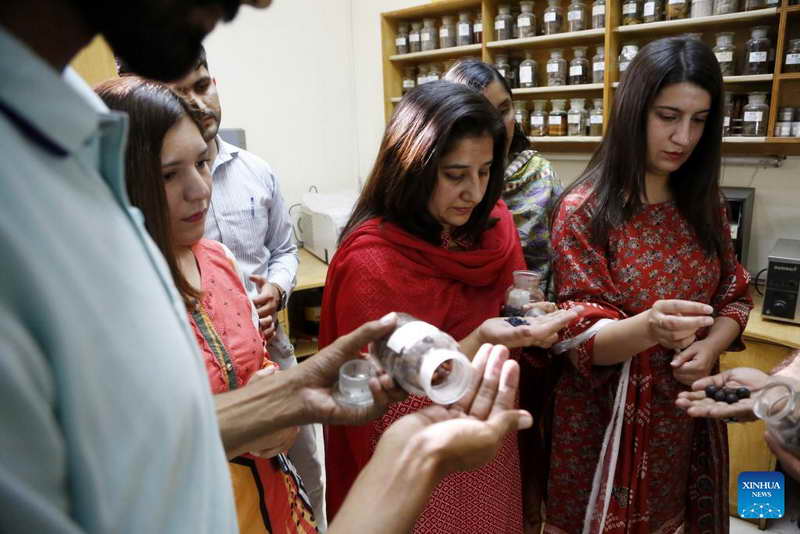
Students of plant sciences check samples of dried Traditional Chinese Medicine (TCM) plants at Quaid-i-Azam University in Islamabad, Pakistan, on May 18, 2023. (Xinhua/Ahmad Kamal)
Since her childhood, Qayyum observed her mother using Pakistani traditional medicine to cure non-serious diseases for her and her siblings. After studying TCM during her Master's degree in plant sciences, she realized how the women in her village could utilize these remedies in a more scientific way to reap greater benefits.
"Pregnant women in my area lack access to good doctors, leading to complications and risks for both the mothers and the fetuses. I want to make a difference by conducting research on TCM to help these women use traditional plants more effectively," she told Xinhua.
Her current research focuses on six plants used to treat various diseases, with a particular emphasis on addressing bacterial infections in young girls and pregnant women, two prevalent health issues in her village.
Qayyum's work is just one example of the extensive research being conducted by hundreds of students in the department on TCM. They firmly believe that TCM can significantly improve Pakistan's healthcare system, offering a cost-effective solution with minimal side effects.
Professor Mushtaq Ahmad, head of the department and an alumnus of the Chengdu Institute of Biology under the Chinese Academy of Sciences (CAS) in Chengdu, southwest China's Sichuan Province, successfully produced a TCM drug using the peony medicinal plant to treat epilepsy. He is now collaborating with local pharmaceutical companies for its clinical trials and production.
Ahmad said that as the interest in TCM grows in Pakistan, it will become a household name and emerge as a powerful traditional or alternative medicine in the South Asian country.
"Pakistani herbal company Qarshi Industry is already producing and distributing an effective TCM drug for hepatitis and liver diseases, incorporating the Chinese traditional plant milk thistle. Users have responded positively to TCM's potential, showing its big scope in the future in Pakistan," he added.
To promote detailed knowledge and research about TCM, the university offers courses in Master of Science and PhD in the field. Additionally, the Islamia University of Bahawalpur has introduced a bachelor's degree in Eastern Medicine, with plans to seek approval from the Higher Education Commission to be considered equivalent to the Bachelor of Medicine and Bachelor of Surgery.
Apart from the plant sciences department, two more departments in the university actively work on TCM. The department of Pharmacy conducts TCM clinical trials, while the chemistry department focuses on studying active ingredients and natural compounds present in TCM plants.
Their coordinated efforts involve biological screening and chemical analysis, leading to valuable research shared with the industry for commercial medicine production.
Naveed Abbas, another student majoring in plant sciences in the university, recalled that his mother would treat his gastrointestinal diseases with wild bitter gourd, wild cucumber, and other plants from the Cucurbits family when he was a child living in a less-developed desert area in Pakistan's eastern Punjab province.
With his research mainly focused on the gourd family, Abbas said the study of TCM has helped him a lot on his research.
With the China-proposed Belt and Road Initiative (BRI) proving to be a game-changer for Pakistan and the rest of the world, the introduction and promotion of TCM in BRI countries could greatly benefit humanity, according to Ahmad.
"As people worldwide seek alternative therapies and treatments due to proven side effects of conventional medicine, TCM, being one of the oldest and most effective systems in the history of medicine, should be promoted globally," he said.
The professor suggested that a chapter about TCM should be added to the books of botany to introduce it to students at an earlier age to have knowledge about its benefits as an alternative medicine.
Abbas plans to pursue his PhD study in China, aiming to collaborate with local pharmaceutical companies to promote the medicine upon his return.
"The uses of TCM have fewer side effects with cheaper prices compared to the medicine which are available in the pharmacies. I want to work on it and convince local people to work on it," he said. ■
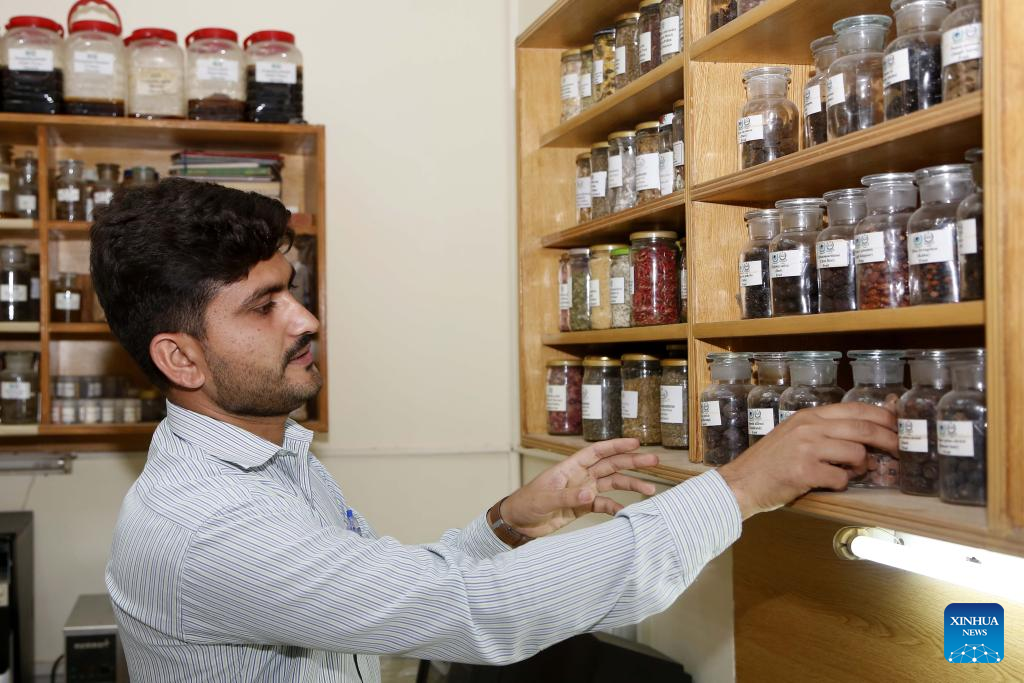
A student of plant sciences checks samples of dried Traditional Chinese Medicine (TCM) plants at Quaid-i-Azam University in Islamabad, Pakistan, on May 18, 2023. (Xinhua/Ahmad Kamal)
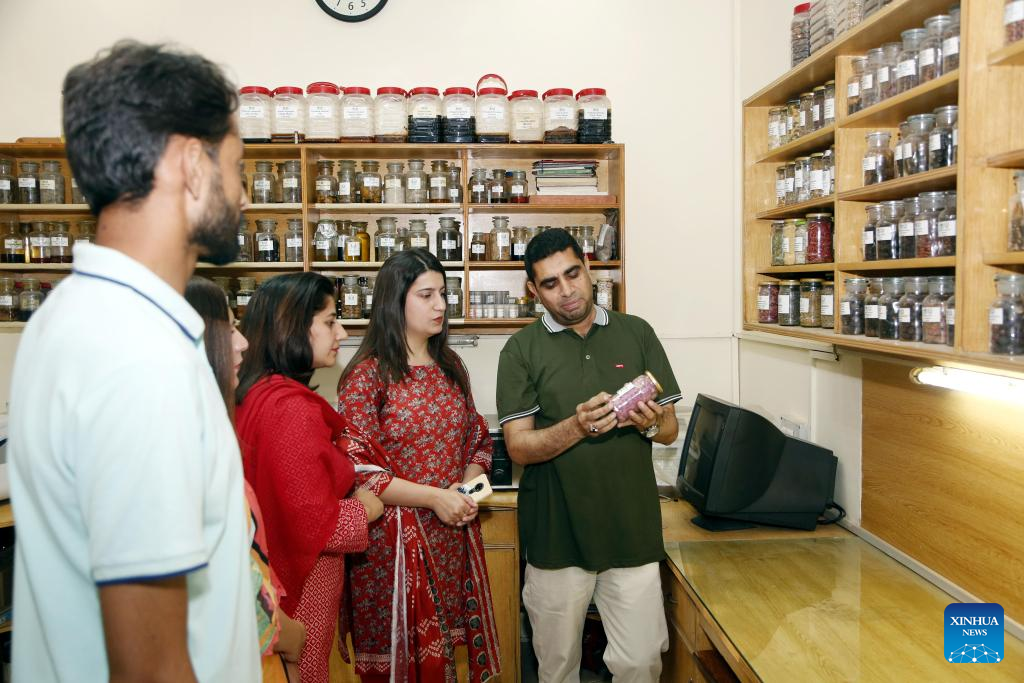
Professor Mushtaq Ahmad (1st R), head of the department on Traditional Chinese Medicine (TCM) at Quaid-i-Azam University and an alumnus of the Chengdu Institute of Biology under the Chinese Academy of Sciences (CAS) in Chengdu, southwest China's Sichuan Province, demonstrates a dried Traditional Chinese Medicine (TCM) plant sample to students at Quaid-i-Azam University in Islamabad, Pakistan, on May 18, 2023. (Xinhua/Ahmad Kamal)
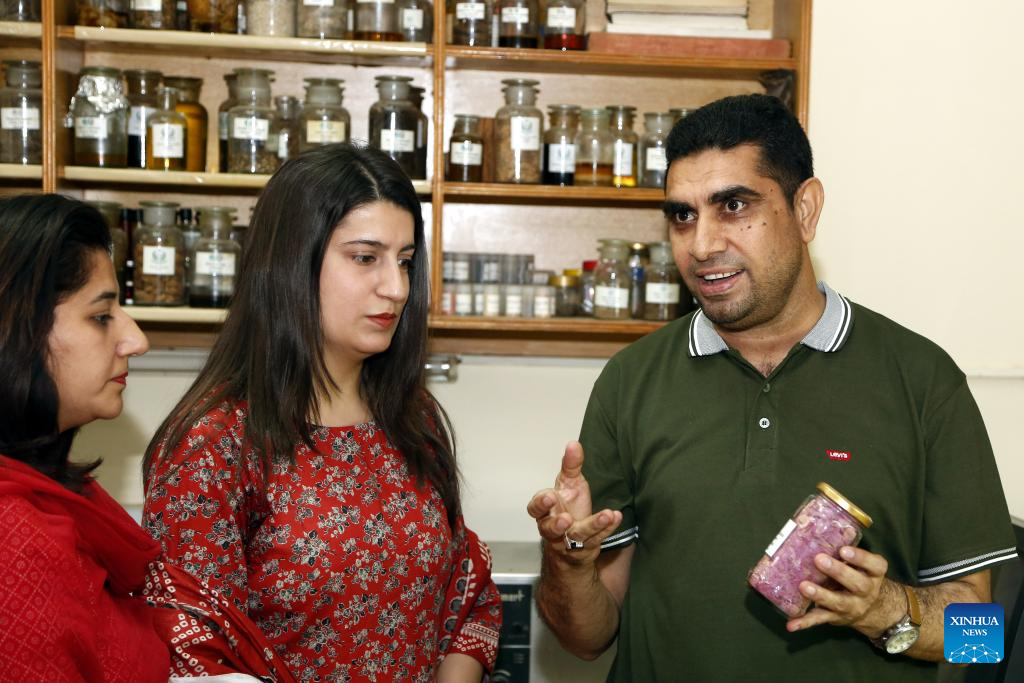
Professor Mushtaq Ahmad (R), head of the department on Traditional Chinese Medicine (TCM) at Quaid-i-Azam University and an alumnus of the Chengdu Institute of Biology under the Chinese Academy of Sciences (CAS) in Chengdu, southwest China's Sichuan Province, demonstrates a dried Traditional Chinese Medicine (TCM) plant sample to students at Quaid-i-Azam University in Islamabad, Pakistan, on May 18, 2023. (Xinhua/Ahmad Kamal)
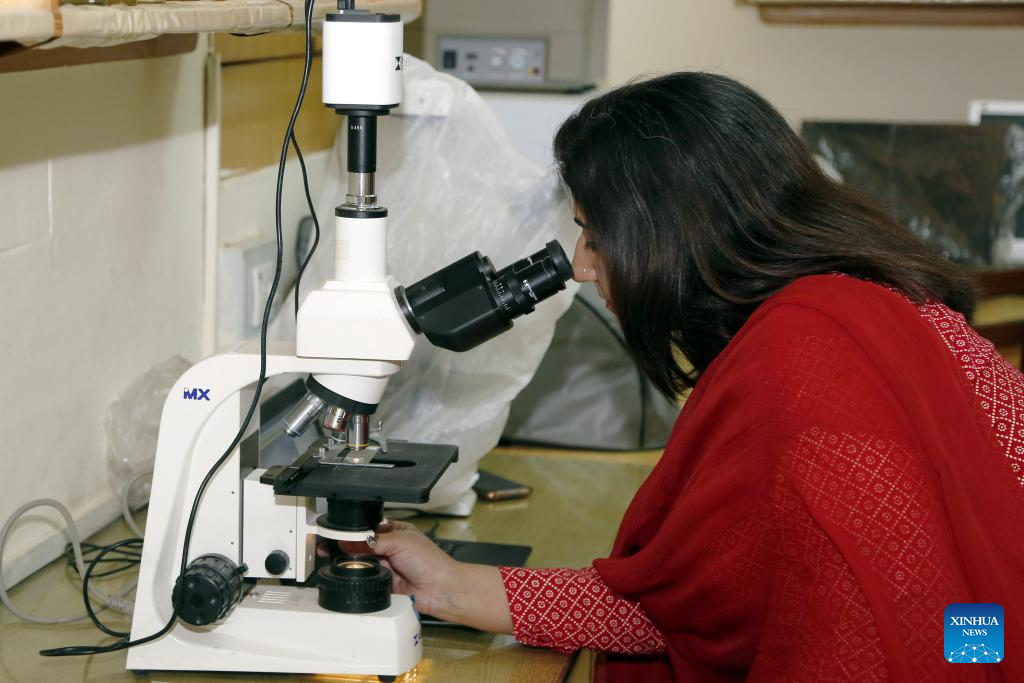
A student of plant sciences observes a lab sample using a microscope at Quaid-i-Azam University in Islamabad, Pakistan, on May 18, 2023. (Xinhua/Ahmad Kamal)